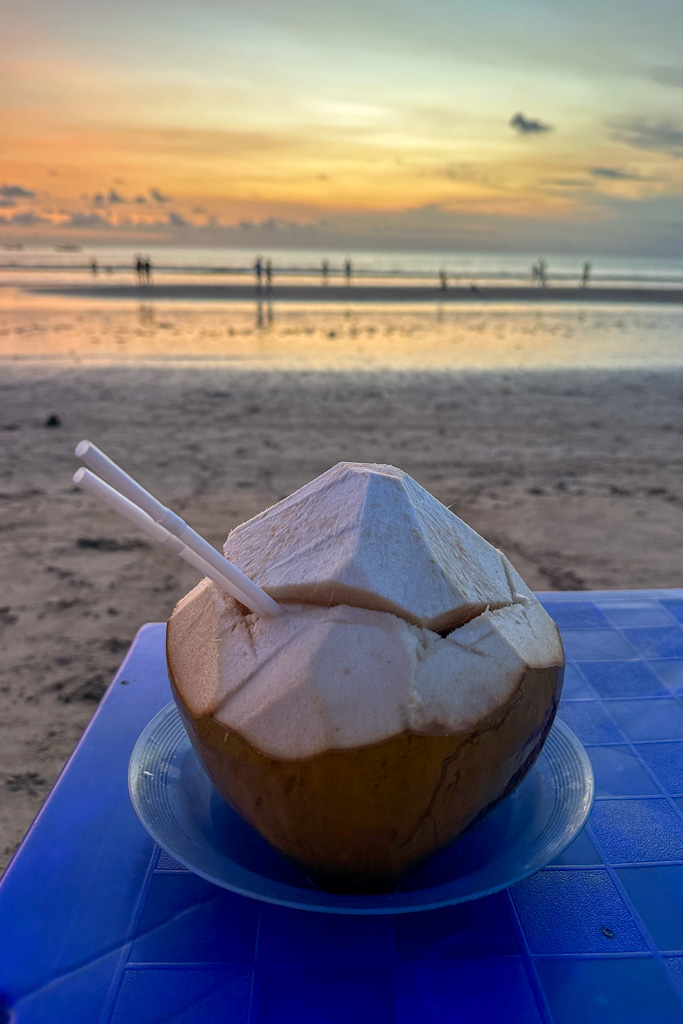Preventing And Treating Bali Belly: A Traveler's Guide

Table of Contents
Understanding Bali Belly
What Causes Bali Belly?
Bali Belly, like traveler's diarrhea in other parts of the world, is primarily caused by consuming food or water contaminated with bacteria or viruses. These pathogens thrive in warm, humid climates like Bali's, making it essential to take precautions. Poor hygiene practices contribute significantly to the spread of these microorganisms. Contaminated food can result from improper food handling, inadequate cooking, and unclean preparation surfaces. Water sources, especially those not properly treated, can also harbor harmful bacteria and viruses.
- Common bacterial culprits: E. coli, Salmonella, Shigella
- Common viral culprits: Norovirus, Rotavirus
Symptoms of Bali Belly
The symptoms of Bali Belly can range from mild to severe. Mild cases may involve loose stools, mild stomach cramps, and some nausea. More severe cases can include:
- Frequent, watery diarrhea
- Severe stomach cramps and abdominal pain
- Nausea and vomiting
- Fever
- Dehydration (a serious complication)
The frequency and consistency of bowel movements, the duration of symptoms, and the severity of dehydration all help determine the seriousness of the case. If you experience symptoms like bloody stools or a high fever, seek immediate medical attention.
When to Seek Medical Attention
While mild cases of Bali Belly often resolve on their own within a few days, it's crucial to know when to seek professional medical help. Severe dehydration, persistent vomiting preventing fluid intake, bloody or black stools, and a high fever (over 102°F or 39°C) all warrant a visit to a doctor or clinic. Staying hydrated is paramount, particularly with severe diarrhea and vomiting.
- Signs of dehydration: Dark urine, dizziness, decreased urination, dry mouth, sunken eyes.
- Reasons to see a doctor: Prolonged symptoms (more than a few days), worsening symptoms, severe dehydration.
Preventing Bali Belly
Food and Water Safety
The most effective way to prevent Bali Belly is by practicing meticulous food and water safety:
- Drink only bottled water: Avoid tap water, ice made from tap water, and unpasteurized beverages.
- Choose cooked foods carefully: Opt for well-cooked foods from reputable establishments. Avoid raw or undercooked meats, seafood, and eggs.
- Peel your own fruits and vegetables: Wash thoroughly if peeling isn't an option, but peeling is preferred.
- Avoid street food from questionable vendors: Stick to well-established restaurants with high hygiene standards.
Hygiene Practices
Maintaining good hygiene is crucial in preventing the spread of bacteria and viruses:
- Wash your hands frequently: Wash thoroughly with soap and water before eating, after using the toilet, and after touching potentially contaminated surfaces.
- Use hand sanitizer: Carry hand sanitizer with at least 60% alcohol and use it when soap and water aren't available.
Probiotics and Medications
- Probiotics: Taking probiotics before and during your trip can help maintain a healthy gut balance and improve your resistance to infection. Consult your doctor about suitable strains and dosages.
- Over-the-counter medications: Loperamide can help manage diarrhea symptoms, but it doesn't treat the underlying infection. It's crucial to understand that it only masks the symptoms. Consult a physician before use.
- Pre-travel vaccinations and medications: Discuss with your doctor the possibility of pre-travel vaccinations or medications that could provide additional protection against common causes of traveler's diarrhea.
Treating Bali Belly
Home Remedies
For mild cases of Bali Belly, focus on rest and rehydration:
- Rest: Avoid strenuous activity to allow your body to focus on recovery.
- Clear fluids: Drink plenty of clear fluids like oral rehydration solutions (ORS), broth, and electrolyte drinks to replace lost fluids and electrolytes.
- Bland diet: Once vomiting subsides, gradually introduce bland foods like rice porridge, toast, and bananas. Avoid dairy and greasy foods.
Medical Treatment
Severe cases of Bali Belly may require medical intervention. A doctor might prescribe antibiotics to combat the bacterial infection. Never self-medicate with antibiotics; always seek professional medical advice.
- Antibiotics: A doctor will determine the appropriate antibiotic based on the specific pathogen involved and your individual health needs. It's crucial to complete the full course of antibiotics, even if your symptoms improve.
Conclusion
Bali Belly is a common travel concern, but with proper preparation and precautions, it's largely preventable. By following the food safety guidelines, practicing good hygiene, and knowing when to seek medical attention, you can significantly reduce your risk of experiencing this unpleasant ailment. Remember to consult your doctor before your trip to discuss preventative measures and to have a plan in place for managing "Bali Belly" should it occur. Enjoy your trip to Bali, worry-free! Plan ahead and stay healthy to avoid dealing with Bali Belly or traveler's diarrhea.

Featured Posts
-
 Is Jennifer Lopez Hosting The American Music Awards In May
May 28, 2025
Is Jennifer Lopez Hosting The American Music Awards In May
May 28, 2025 -
 Jennifer Lopez To Host The 2025 American Music Awards On Cbs
May 28, 2025
Jennifer Lopez To Host The 2025 American Music Awards On Cbs
May 28, 2025 -
 Mlb Betting Brewers Vs Diamondbacks Predictions And Expert Picks
May 28, 2025
Mlb Betting Brewers Vs Diamondbacks Predictions And Expert Picks
May 28, 2025 -
 Khyu Dzhakman I Stn Fostr Zaedno
May 28, 2025
Khyu Dzhakman I Stn Fostr Zaedno
May 28, 2025 -
 Most Violent Pirate Crews In One Piece A Ranking Of Ruthless Buccaneers
May 28, 2025
Most Violent Pirate Crews In One Piece A Ranking Of Ruthless Buccaneers
May 28, 2025
